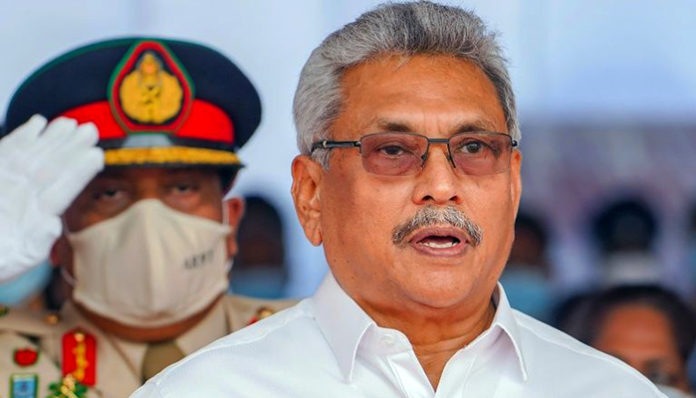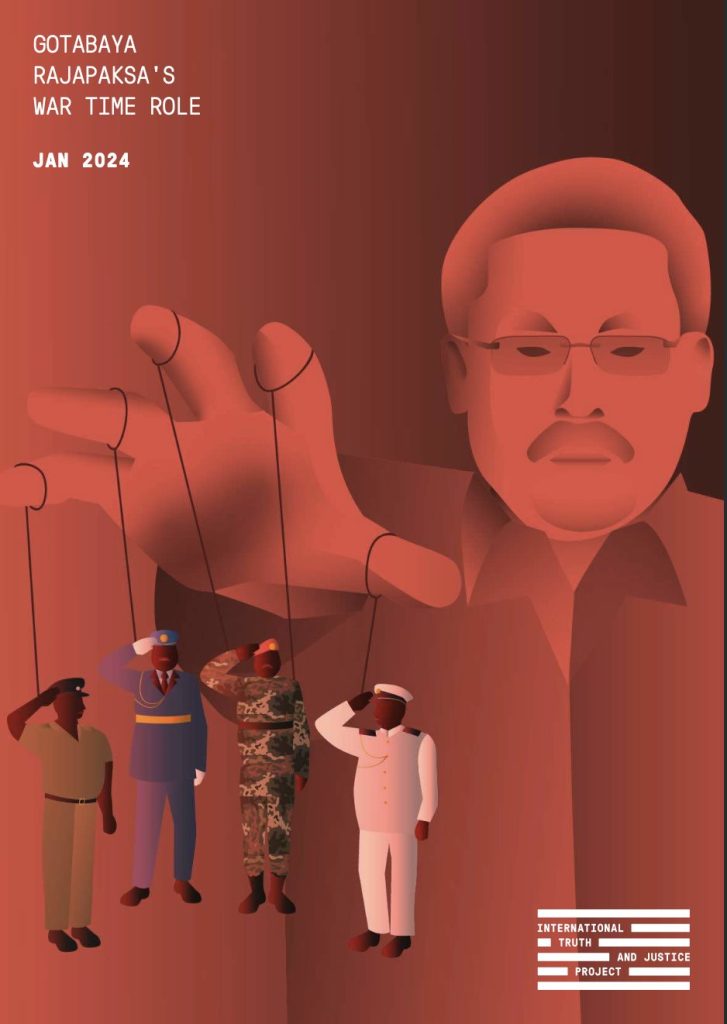Fifteen years after the war in Sri Lanka ended, mounting evidence has emerged against former President, Gotabaya Rajapaksa, for his pivotal role in the commission of war crimes and crimes against humanity during the civil war, said international human rights lawyers in a new report.
“If Sri Lanka is serious about dealing with its violent past, the litmus test is to hold Gotabaya Rajapaksa criminally accountable for war crimes and crimes against humanity,” commented the International Truth and Justice Project (ITJP)’s executive director, Yasmin Sooka.
2009
The damning report released in Johannesburg presents detailed linkage evidence connecting former President Rajapaksa to orders given by him to commanders in the field in 2009 when he was secretary to the Ministry of Defence. Although not the army commander, Gotabaya had command and effective control of the security forces. The report shows he had contemporaneous knowledge of the violations of
international humanitarian law and international criminal law being committed, and failed to take any steps to prevent them, or to hold those under his command accountable, says ITJP. He andsuccessive Sri Lankan governments have had countless opportunities since the war-end to initiatecredible investigations into allegations of gross human rights violations and to establish prosecutions. Instead of allowing the truth to come to light, Gotabaya and his successors have perpetuated denial of the complicity of the security forces in these violations, rewarding and protecting the alleged perpetrators, charges ITJP.
The 96-page document examines evidence of Gotabaya Rajapaksa’s alleged involvement in and knowledge of attacks on the No Fire Zones set up to protect civilians, his failure to prevent and investigate summary executions, enforced disappearance, torture, rape and sexual violence, arbitrary detention and the denial of humanitarian aid to civilians.
1989
This follows a report published by the ITJP in 2022 which examined Gotabaya Rajapaksa’s alleged complicity in mass enforced disappearance in an earlier period of violence in the late eighties in Sri Lanka. As a young army officer in Matale District in 1989, Gotabaya Rajapaksa was in command and control when more than 700 people – mainly from the majority Sinhala community – were disappeared under his watch.
Both he and his subordinates from the period were promoted and went on to play pivotal roles in the 2009 conflict with one currently serving as Chief of Defence Staff despite being designated for gross violations of human rights by the US
Government.
In response to an ITJP submission, UN experts wrote to the current government in 2022 askingwhat they had done to investigate Gotabaya Rajapaksa’s role in the violence in the late eighties.
To date there has been no response. This is despite the fact that the government of Sri Lanka says it now wants to establish a Truth Commission to deal with the past – something it had promised in 2015.
“Gotabaya Rajapaksa is arguably the most notorious alleged perpetrator involved in both the violence against Tamils and Sinhalese; there is a direct line of impunity running from 1989 to 2009 and to the present day,” said Ms. Sooka. “There have been several commissions of inquiry with reports unpublished and recommendations not implemented; these left many families of the victims disillusioned and distrustful of the government. It is widely accepted that commissions alone cannot achieve that guarantee of non-recurrence that societies need after conflict – without criminal accountability”.
Accountability Attempts The ITJP assisted eleven Tamil and Sinhala victims to file a civil case against Gotabaya Rajapaksa for torture in the United States in 2019 but he acquired head of state immunity by being elected President that year. Another case accused him of involvement in the assassination of Sunday Leader founding editor Lasantha Wickremetunge.
In 2022, Rajapaksa was chased out of office by protestors angry about his mismanagement of the economy. He fled to Singapore where the ITJP submitted a criminal complaint against him over his war time role but he soon returned to Sri Lanka where he has continued to enjoy protection despite the change of President.
Canada however has led the way in recently sanctioning Gotabaya Rajapaksa and his brother.
Other countries though have been reluctant to follow suit, including those who voted at the UN Human Rights Council for the establishment of a UN project looking at accountability for Sri Lanka, says ITJP.
The current government of Sri Lanka has been arguing it can’t tackle a crippling economic crisis at the same time as holding the security forces accountable for mass atrocities. The same arguments were made in the past and only further entrenched impunity, charged ITJP.
Full report here



